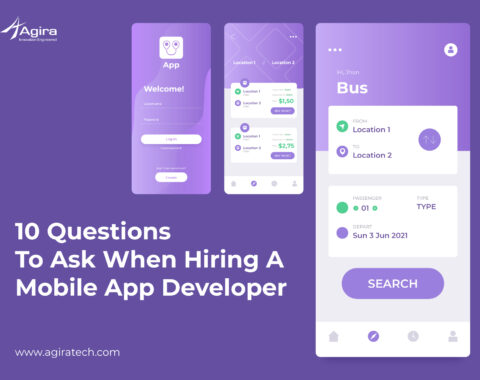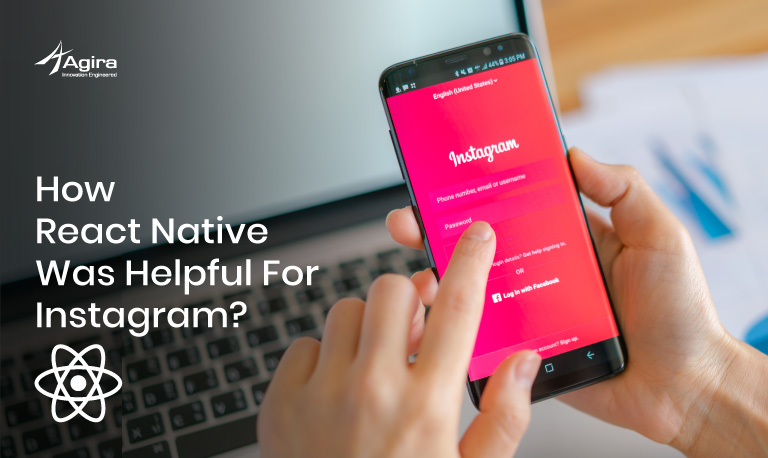Table of Contents
Keeping up with digital transformation in healthcare as a healthcare organization can be overwhelming. Deciding which emerging technologies are worth investing in and getting your staff on board with change is frequently the most difficult aspect.
Unfortunately, when it comes to implementing digital strategies, the healthcare and pharmaceutical sectors have fallen behind. In fact, just 7% of healthcare and pharmaceutical businesses indicated they had gone digital in a recent survey, compared to 15% of companies in other industries.
Here’s a better look at the state of digital transformation in healthcare in 2021:
1) On-Demand Healthcare Apps
When you hear the term “on-demand,” you probably think of customers who want products whenever and wherever they want them. Patients seeking on-demand healthcare due to their busy schedules are ushering in a new age of digital innovation in the healthcare sector.
Consumers go online for medical information for the following reasons, according to DMN3:
- The doctors who do research account for 47% of the total.
- Hospitals and medical facilities are the subjects of 38% of the research.
- 77% of people make medical appointments.
However, the development of the ‘gig’ economy, in which independent experts in many sectors contract themselves out per task or ‘gig,’ rather than anchoring themselves, drives on-demand healthcare.
Nomad Health, for example, is an online marketplace that connects doctors with medical facilities for short-term labor. They’re making it more straightforward for doctors to deliver on-demand healthcare to customers in situations when their skills, knowledge, and schedule are a good match. Otherwise, doctors are becoming on-demand healthcare providers to meet the changing requirements of their patients better.
Related: How To Develop A Healthcare Mobile Application For Hospitals
2) Big Data Healthcare Apps
Big data collects information about a company in various formats, including social media, eCommerce, online transactions, and financial activities. It then analyses it for patterns and trends that one can use in the future.
Big data may assist the healthcare business in several ways, including:
- Lower rate of medication mistakes – by analyzing patient records, the software may detect discrepancies between a patient’s health and medicine prescriptions, notifying health professionals and patients when a medication error is possible.
- Facilitating Preventive Care – recurrent patients, often known as “frequent flyers,” make up a large percentage of those who visit emergency rooms. They can account for as much as 28% of all visitors. Big data analysis might help identify these individuals and devise strategies to discourage them from returning.
- More Accurate Staffing – Predictive analytics using big data might assist hospitals and clinics in forecasting future admission rates. This allows them to assign staff better to deal with patients. When a facility is understaffed, this saves money and decreases emergency room wait times.
Healthcare and pharmaceutical businesses should invest in data organization with these advantages in mind. This necessitates a financial investment in data analysts who can uncover areas of weakness and assist firms in better understanding their market.
3) Virtual Reality Apps For Treating Patients
Telling folks ten years ago that you could relieve their pain with a gadget that looked like a video game would have gotten many blank eyes. However, in 2018, Virtual Reality (VR) is the crown jewel of healthcare’s digital revolution. Its numerous uses are drastically altering the way patients are treated.
Take, for example, pain treatment. Doctors used to dole out opioid prescriptions like candy until lately. Migraines? Is there any discomfort after surgery? Here’s some OxyContin, Vicodin, or Percocet to get you through the day. As a result, the government is presently dealing with the most significant drug epidemic in the country’s history, costing $78.5 billion each year.
Everyone is investing in virtual reality, from startups to pharma behemoths, and there are data to back it up. By 2025, the global market for virtual and augmented reality in healthcare is anticipated to reach $5.1 billion. If you’re a healthcare firm considering a digital marketing strategy, this technology should be high on your list.
VR is a vital communication medium that may help you better understand your consumers’ requirements and virtually engage them with your products or services, among other things.
4) Wearable Medical Devices And Apps
Companies gathering their own health data from medical equipment, particularly wearable technology, is another trend of the digital transformation in healthcare.
Most people used to be content with getting a physical once a year and only consulting their doctors when anything went wrong. Patients are concentrating on prevention and maintenance in the digital era, seeking more information about their health.
The following are some of the most prevalent of these devices:
- Sensors for measuring heart rate
- Fitness trackers
- People with diabetes utilize sweat meters to keep track of their blood sugar levels.
- Oximeters are devices that measure the quantity of oxygen in the blood and are commonly used by people with respiratory diseases like COPD or asthma.
Wearable technology can also save money for healthcare organizations. According to one research, health applications and wearables for preventative care may save the United States’ healthcare system almost $7 billion each year.
5) Predictive Healthcare Apps
We discussed how big data might assist healthcare firms with predictive analytics regarding admission rates and help them staff their facilities correctly earlier. Predicting which ailments and diseases will become significant concerns shortly is another aspect driving the digital transformation in healthcare.
Healthcare firms may use data gathered from Big Data and other marketing sources to generate healthy living advice for their patients.
To discover the most frequent searches for medical problems, illnesses, and general health, you might engage an analyst to examine keyword activity across social media platforms and major search engines.
After that, the analyst might create a prediction model to forecast where and when the next major health concern will occur, as well as how your organization should prepare for it.
On a lesser scale, though, predictive research might assist firms of all sizes in determining when to recruit temporary workers in the event of oncoming cold and flu outbreaks, which could result in a labor shortage.
6) AI Healthcare Apps
Artificial intelligence (AI) in healthcare is more than just a digital transformation trend. Industry companies are keen to invest millions in AI since it represents the pinnacle of medical innovation. By 2025, the market for AI-powered healthcare products is anticipated to surpass $34 billion, implying that this technology will influence nearly every aspect of the business.
Patients are also getting more accustomed to AI-based technology such as chatbots and virtual health assistants. Chatbots can take on a variety of functions, including customer service, diagnostic tools, and even therapists. Their adaptability has resulted in significant investments. From $122 million in 2018, the worldwide healthcare chatbots market is expected to reach $314.3 million by 2023.
Related: Advantages of Geographic Information Systems (GIS) In Healthcare
AI-powered computer systems in oncology evaluate hundreds of pathology pictures of various tumors. This offers extremely accurate diagnoses and forecasts the best anti-cancer medication combinations imaginable. This technology also aids radiologists in detecting details that are missed by the naked eye in medical imaging diagnoses.
By 2026, artificial intelligence is expected to save the US healthcare industry $150 billion each year. The number of active AI businesses has risen 14-fold since 2000. This indicates that entrepreneurs are already taking advantage of this potential.
Any CEO who wants to take their health organization to the next level of digital maturity. And that AI is a worthwhile investment.
7) Blockchain Healthcare Apps
Due to the bursting of the Bitcoin bubble, blockchain has recently gained a negative reputation. Now, the typical individual thinks of blockchain as a hazy, perplexing notion that has little bearing on their lives. In truth, this technology will soon play a critical role in ensuring the accuracy and security of electronic health information.
Doesn’t the state of digital transformation in healthcare (web and mobile) in 2021 appear to be pretty promising?
The objective is to develop products and services that better people’s lives or meet a need or need. Technology can assist you in achieving this aim. Use this opportunity as a compass to help you navigate the digital healthcare sector and create transformational experiences. It’ll save you time and money.
Talk To Experts
Health and fitness app developers have taken a step ahead in bridging the gap by providing interactive and creative solutions. Get in touch with the best Healthcare App development company to build innovative apps for a healthy lifestyle.










